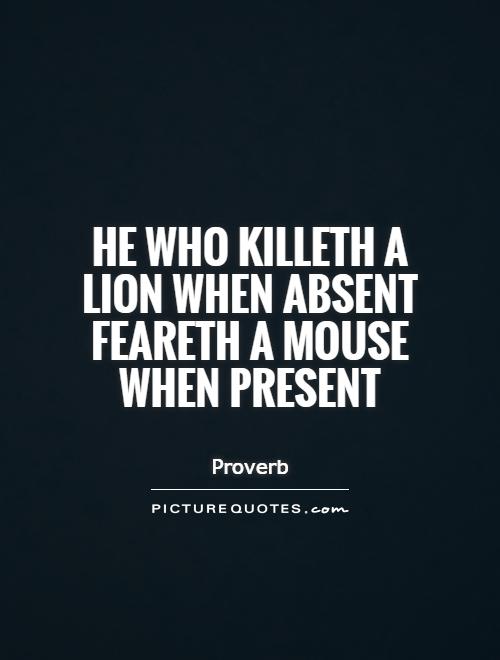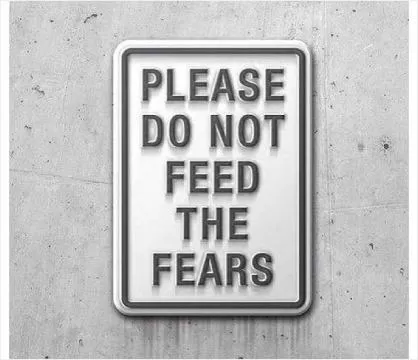He who killeth a lion when absent feareth a mouse when present

He who killeth a lion when absent feareth a mouse when present
The proverb "He who killeth a lion when absent feareth a mouse when present" is a powerful reminder of the way fear can distort our perceptions and reactions. At its core, this proverb speaks to the idea that we often find ourselves capable of facing great challenges and dangers when they are not directly in front of us, but can become paralyzed by much smaller threats when they are right in front of us.The image of killing a lion when absent is a metaphor for facing and overcoming significant challenges or fears. Lions are powerful and dangerous creatures, and killing one would require immense courage, strength, and skill. In this context, the proverb suggests that when we are able to confront and conquer our fears from a distance or in hindsight, we may feel invincible and fearless. However, when faced with a smaller, more immediate threat, like a mouse, we may find ourselves feeling overwhelmed and afraid.
This proverb highlights the irrationality of fear and the way it can magnify or diminish the perceived danger of a situation. It reminds us that our perception of risk is often influenced by our emotions and past experiences, rather than the actual level of danger present. Just as a lion can seem less intimidating from a distance, so too can our fears seem more manageable when viewed from a removed perspective.












 Friendship Quotes
Friendship Quotes Love Quotes
Love Quotes Life Quotes
Life Quotes Funny Quotes
Funny Quotes Motivational Quotes
Motivational Quotes Inspirational Quotes
Inspirational Quotes